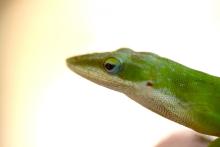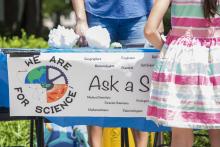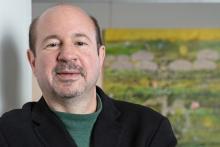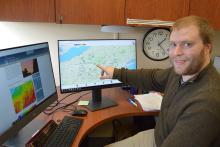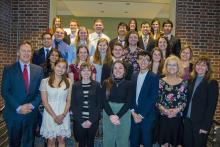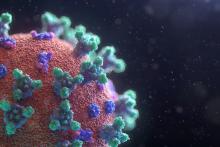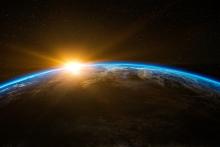A good grip can mean the difference between life and death for lizards in a hurricane, causing populations hit more frequently by hurricanes to have larger toepads, according to researchers from Washington University and Penn State.
The College of Earth and Mineral Sciences’ Graduate Fellows for Science Advocacy and Diversity (EMS-GFSAD) program is wrapping up its inaugural year and has already had an impact in promoting a diverse and inclusive scientific community.
Michael Mann, distinguished professor of atmospheric sciences and director of Penn State's Earth System Science Center at Penn State, has been elected to the National Academy of Sciences, recognizing distinguished and continuing achievements in original research.
A supercell thunderstorm pelted a city center in Argentina a few years ago with hailstones so large scientists suggested a new category to describe them — gargantuan hail.
If warming continues unabated in the Midwest, in 50 years we can expect the best conditions for corn and soybean production to have shifted from Iowa and Illinois to Minnesota and the Dakotas, according to Penn State researchers.
After tornadoes hit his southwestern Pennsylvania hometown in 1998, 9-year-old Kyle Imhoff learned a few things. Weather events could be very dangerous — but also fascinating.
Hannah Patel spent the last four years finding her place on campus – and is ready to help current underclass students do the same.
With speed and ingenuity, more than 100 researchers across Penn State are shifting their research programs to address the COVID-19 crisis, thanks to funding from a seed grant initiative led by the Huck Institutes of the Life Sciences.
Chris Forest, professor of climate dynamics, will look at uncertainty in Earth system model projections and its effects on assessing climate risk and proposing solutions at the next EarthTalks seminar at 4 p.m. Monday, March 23.


